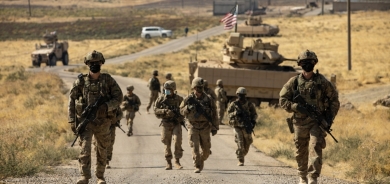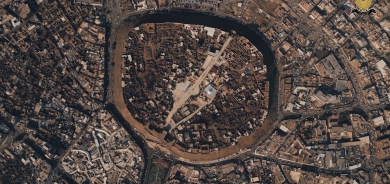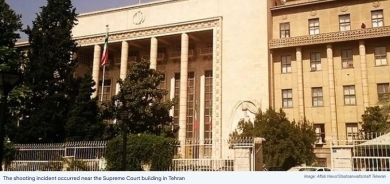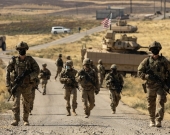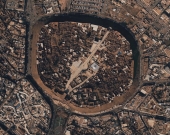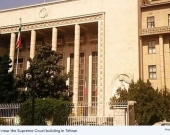Peshkhabur Crossing Reopens to Humanitarian Visits and Trade

Hundreds of Syrian Kurds have crossed the border for medical treatment and reunion with relatives at refugee camps, after the Peshkhabur border was officially reopened between Syrian Kurdistan (Rojava) and the Kurdistan Region, but only for humanitarian aid and trade.
“We have opened the border to the people who want to cross into the Kurdistan Region," said Shawkat Barubahri, head of the Peshkhabur border crossing in the Kurdistan Region.
“Opening the border is not for trade now, it’s for people who have humanitarian cases,” said Ibrahim Yaro, a senior leader of the Azadi Kurdish Party in Syria, explaining that the opening was so far limited. “Trade can be done in the future between KRG and Syria,” he said.
Refugee traffic and trade came to a halt after the Democratic Union Party (PYD), the dominant Kurdish force in Syrian Kurdistan, decided to close the border on October 26. It did so after the KRG denied entry to PYD leader Salih Muslim.
The KRG had accused PYD of breaching the Erbil Agreement, a deal brokered by Kurdistan Region President Massoud Barzani to form the Kurdish Supreme Council between the PYD and 14 other Kurdish parties from Syria.
According to a Rudaw reporter, some 250 people are being allowed to enter the Kurdistan Region daily for medical treatment, visiting relatives or shopping for basic necessities. About 3,000 people are waiting on the Rojava side to enter the Kurdish region, the reporter said.
“We are in a bad condition and my kids are sick. We are here for medical treatment,” a Kurdish woman who entered Kurdistan Region told Rudaw.
The Syrian Kurdish People’s Council and Kurdistan National Council (KNC) announced a deal last month for the limited reopening of the border.
“A joint committee from the Syrian Kurdish People’s Council and Kurdistan National Council (KNC) supervises the border on the Rojava side,” added Barubahri.
Authorities on the Rojava side have imposed a charge for people who want to cross into KRG-controlled areas.
“We collect $7 from anyone who wants to go to the Kurdistan Region," said Mahmoud Safwat, a member of the joint committee on the Rojava side of the border. “The money is used to pay the salaries of employees working on the border, and the rest would go to the Supreme Council," he explained.
The KRG has imposed no such charge for people going in either direction, and officials explained that refugees were allowed to carry their household needs with them. Some 250,000 Syrian Kurdish refugees have arrived in the Kurdistan Region since a 2011 uprising against the Damascus regime.
Safwat said the opening of the border would put a put a stop to human trafficking. A source, speaking on condition of anonymity, told Rudaw that "cigarette smuggling is the most profitable business. The Rojava authority allows it and permission is granted by the general tobacco department in Rojava after paying taxes."
PYD is the main Kurdish party in Syrian Kurdistan and its armed People’s Protection Units (YPG) seized control of most Kurdish areas after regime forces withdrew last year. In November, the PYD announced a unilateral interim administration in Rojava, which was rejected by the KRG.
RUDAW


